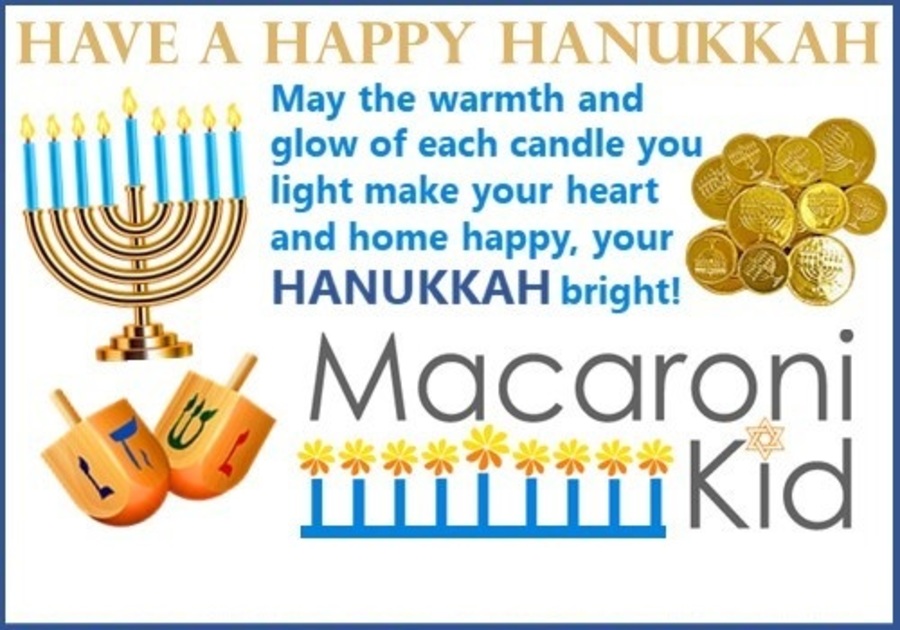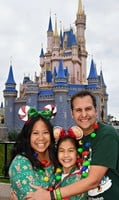| ABOUT THE HOLIDAY OF CHANUKAH |
The holiday of Hanukkah celebrates the Maccabee, a small group of Jews who defeated one of the mightiest armies on earth, who were trying to impose their religion on them. When they went to reclaim their Temple in Jerusalem and light the Temple's Menorah, they found only a single night of olive oil left. Miraculously, the one-day supply burned for eight days, until new oil could be prepared. That is what the Festival of Lights celebrates, that the oil they found burnt for 8 days instead of one-night.
To commemorate this miracle, the holiday includes a nightly menorah lighting: a single flame on the first night, two on the second evening, and so on until the eighth night, when all eight lights are kindled. There are also several traditions around the holiday that help make it a fun holiday for kids and families.
| OILY FOODS |
Oil played a significant role in the Hanukkah story and so it is a Jewish tradition to eat foods that are fried in oil. Among the most popular Hanukkah dishes are potato latkes (pancakes) and sufganiyot (deep-fried jelly-filled doughnuts).
| GELT |
Gelt is one of the traditions is to give kids Hanukkah gelt (Yiddish for "money"). It is often distributed to children to add to the holiday excitement. The amount is usually in small coins, although grandparents or relatives may give larger sums. That is why you will see chocolate coin bags in your local supermarket and why some parents give this to their kids every night during Hanukkah. This tradition of giving Hanukkah gelt dates back to a long-standing East European custom of children presenting their teachers with a small sum of money at this time of year as a token of gratitude.
| HOW TO PLAY DREIDEL |
At Hanukkah time, one of the traditions is to play the game of Dreidel with the family. The Dreidel has a Hebrew letter on each of its four sides. The nun, gimmel, hay, and shin stand for the saying, "Nes Gadol Haya Sham," which translates to "a great miracle occurred there." "There" refers to Israel, and "the great miracle" refers to the miracle of Hanukkah, of course.
Getting Started:
You need a Dreidel (click here to make one) and some sort of pile of items such as pennies, beans, tokens, jelly beans. Each player puts one item from his pile of tokens into the center, making a pile called the ‘pot’. The first player spins the dreidel; the letter that comes up determines what to do:
What the symbols or Hebrew letters mean on the Dreidel and what you do:
a) If נ (nun) is facing up, the player does nothing.
b) If ג (gimel) is facing up, the player gets everything in the pot.
c) If ה (hay) is facing up, the player gets half of the pieces in the pot. (If there are an odd number of pieces in the pot, the player takes half the pot rounded up to the nearest whole number)
d) If ש (shin) or פ (pei) is facing up, the player adds a game piece to the pot (often accompanied with the chant "Shin, Shin, put one in). In some game versions, a Shin results in adding three game pieces to the pot (one for each stem of the Shin).
If the player is out of pieces, they are either "out" or may ask another player for a "loan" No need to count the tokens to ‘find the winner’; whoever played is a winner.
| THE NIGHTLY LIGHTING OF THE MENORAH |
There is one candle for each night of Hanukkah plus the shamash, or “helper,” candle that is used to light all the others. All eight of the Hanukkah lights should be the same height; one candle the shamash is usually placed higher or lower on the chanukiyah, to differentiate it from the actual Hanukkah lights. The candles are placed in the chanukiyah each night from the right side to the left (the same way Hebrew is read) but they are lit each night from left to right (the newest candle is lit first). There are three blessings said on the first night of Hanukkah, and then two each subsequent night. Click Here for the BLESSING
For more information about the holiday visit Chabad.
For Hannukah Events all around Atlanta, please check our event calendar.



